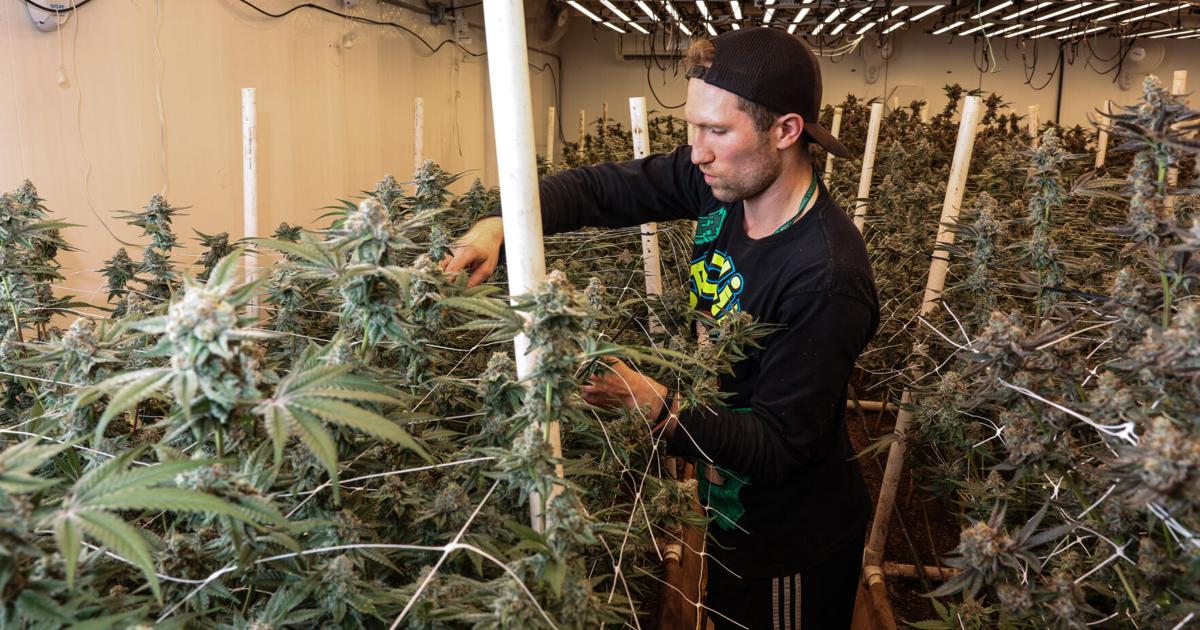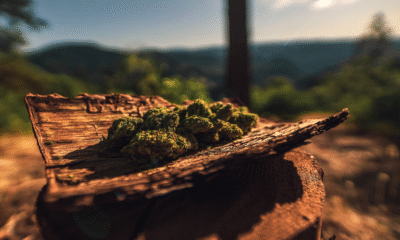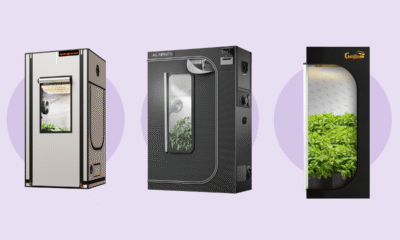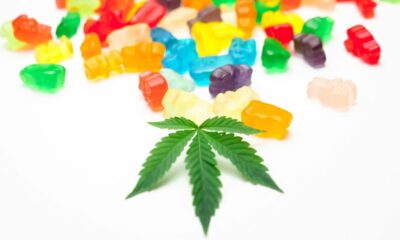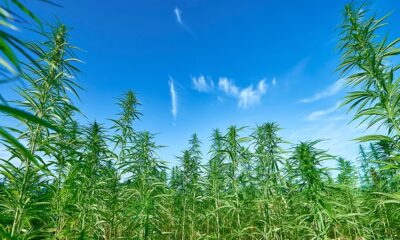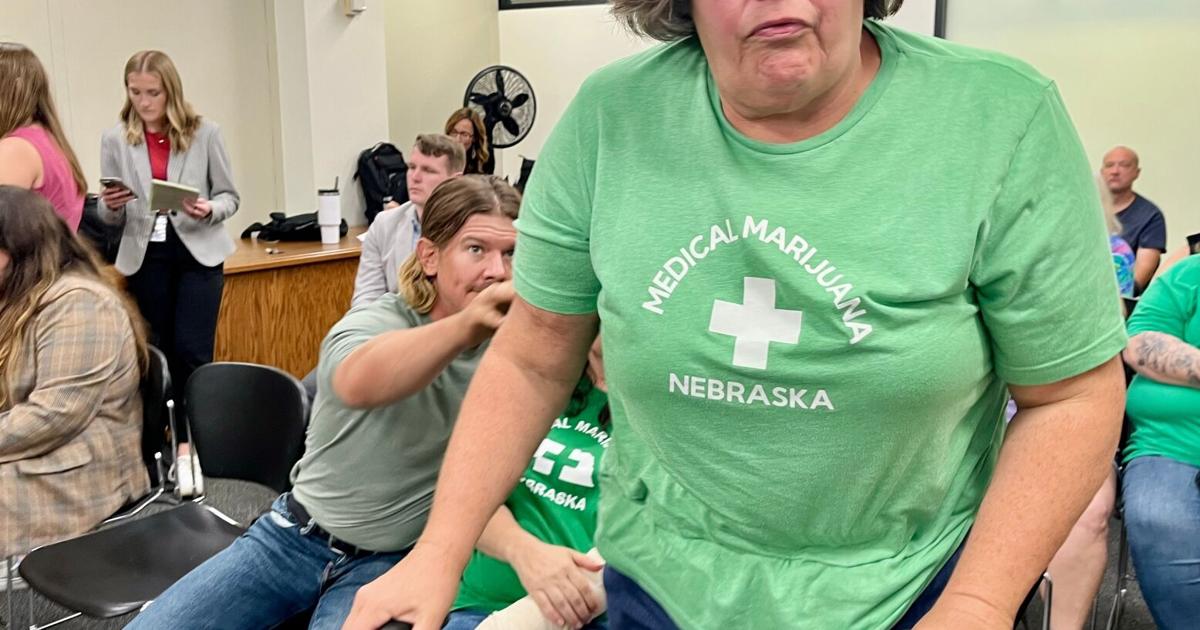Depending what side of the Mississippi River you find yourself on, your ability to purchase legal marijuana is drastically different. As of August 2023, Minnesota residents can buy, grow and use marijuana as long as they are 21 or older. Wisconsin still criminalizes the plant.
Despite different legal status, marijuana is still not widely available in Minnesota yet. The legal change is very new to the state, and licenses for dispensaries to sell recreational marijuana are still a ways down the line.
“They’re looking at starting to issue licenses early next year. Hopefully sooner, but looking at next spring,” said Harry Penner, co-founder of Ripple Leaf Farms in Winona, Minnesota. “We’re looking to get a license that would allow us to have a small grow area and also retail.”
Until then, both Minnesota and Wisconsin remain on the same page regarding what is commercially available. Smoke shops and dispensaries sell cannabis products that legally qualify as hemp, not marijuana, even if they can have similar effects.
People are also reading…

CBD and CBG products are seen at The Rippled Leaf in Winona in May 2023. While marijuana is now legal for recreational use in Minnesota, the drug is not widely commercially available in the state.
Growing in Wisconsin
In the back lot of what once was the La Crosse Rubber Mills, a major growing operation develops the raw ingredient that props up the industry. Fans line the ceilings of the grow rooms, blowing moist air containing a strong sweet and earthy aroma that sticks to anything that touches the plants. Green sticky stalks line several rooms, ready to be cut, dried and bagged up as pure buds, pre-rolled joints, gummies, chocolates and more.
Yes, this is cannabis, but it is not marijuana. With careful seed selection and breeding practices, Dan Schmidtknecht and the team at Stacks Family Farms are legally growing hemp. It grows and smokes the same, but with close to none of the chemicals that would constitute it as marijuana, a Schedule I controlled substance in Wisconsin.
Cannabis is the overarching term for both hemp and marijuana plants.
Tetrahydrocannabinol, commonly known as THC, is the psychoactive component of cannabis that gives users various feelings from euphoria to anxiety. In marijuana, this chemical typically makes up 30-40% of the cannabis plant. In hemp, THC levels are 0.3% or less of the plant.

Gio Donisi tends to the hemp plants at Stacks Family Farms in La Crosse on Tuesday, April 16. The farm produces a form of cannabis which contains levels of THC at or under the state’s legal limit of 0.3%.
Because the THC is derived from hemp instead of marijuana, making THC products is legal across the country with hemp. It requires a lot more flower to make products with hemp than marijuana to get people high, but it still can grant the same effects.
Because of the Agriculture Improvement Act of 2018, growing hemp is permitted across the country with a license and USDA supervision. Businesses like Stacks Family Farms have been jumping at the opportunity to grow hemp since the bill passed.
Dan Schmidtknecht, president of Stacks Family Farms and THC drink company Sensi, said getting off the ground was an uphill battle.
“It took us about 16 months to get fully set up and ready. The building needed a lot of changes to get it in the state we wanted to grow our product in,” Schmidtknecht said.
Stacks Family Farms sells its product across the country from California to their Minnesotan neighbors. To Schmidtknecht, the divide between Minnesota and Wisconsin laws is not a bad thing.
“It’s healthy. It gets rid of the negative stigma now that things are becoming legal. It takes the taboo of what we’re doing away,” Schmidtknecht said. “It doesn’t really affect our business that much because we’re able to sell almost every legal product that legal states can sell. Our gummies are dispensary quality get-you-high gummies.”

Dan Schmidtknecht, co-owner of Stacks Family Farms, stands in a storage room at the company’s facilities in La Crosse on Tuesday, April 16. The company produces an array of products including edible gummies, beverages and smokable flower.
‘The right way’
Growing hemp is an unrelenting process. To ensure growers work within federal law, USDA staff check on the Stacks operation once a month and any time they are ready to harvest a crop.
USDA staff test to make sure THC levels of the plant remain below 0.3%. If the legal amount is exceeded, the USDA will destroy the entire harvest. Having a hemp license protects the business from prosecution if a harvest is above the legal limit.
The growing process is also tedious. At Stacks, hemp is grown in hermetically sealed grow rooms with hyper-regulated humidity, temperature, light and soil moisture. Staff tending to the plants shower and change into new clothing before working to keep all contaminants out of the process.
“We’re trying to do everything the right way. Wisconsin’s really unregulated, so there’s a lot of bad players out there, people that aren’t getting their stuff tested or are getting it manufactured in other states,” Schmidtknecht said.
After a harvest is complete, the flower buds are cut, dried and turned into various products. Large flower buds are sold wholesale, smaller buds become pre-rolled joints and the trimmings are sent to Carbon Cannabis for oil extraction.
Carbon Cannabis and Stacks Family Farms have a long-running exchange for edible products. Through CO2 treatments, Carbon Cannabis can turn Stacks’ hemp into potent cannabis oil. This oil is then used in chocolates, gummies and even seltzer drinks.
These hemp products give users a similar effect as marijuana products would. Even with legalized marijuana in Minnesota, Schmidtknecht said Stacks will continue to grow its hemp-based products.
Penner added that the Rippled Leaf shop in Winona will also continue to sell hemp products as long as people buy them. Although it is only possible through some legal loopholes, the demand for hemp-based products is not an anomaly and has remained strong in states that have legalized marijuana.

Gio Donisi sorts clones of a hemp plant at Stacks Family Farms in La Crosse on Tuesday.
Change in reception
Last year, Stacks Family Farms and Carbon Cannabis entered their first full partnership with Sensi, a new THC seltzer with all natural ingredients and cannabis oil. Sensi is named after sensimilla, the seedless female form of the cannabis flower.
Schmidtknecht and the team behind the drink marketed the seltzer for common consumers and sought to put Sensi into grocery stores and bars across the region. Reception was slow at first. Many store and bar owners were confused about the legality of THC products and were wary to stick their neck out for it.
“Now, reception is overwhelmingly positive. We have people reaching out to us to carry our products way more than people saying no,” Schmidtknecht said. “It’s probably 90-10 going cold stop into bars now. Ninety percent are going to say, ‘Yes, let’s try it out.’”
For Schmidtknecht, Sensi’s value is in letting consumers control their high. Sensi drinks come in two variants: 7.5 mg of THC and 2.5 mg. For comparison, a typical THC joint contains about 30-40 mg of THC, depending on the specific product.
At low THC values, consumers can direct their high to their liking. First-time users can dip their toes into the THC experience and see if it is for them or not.
Penner and Schmidtknecht said some cannabis users can feel anxiety with too much THC, and both recommend controlled doses like edibles for the first-time user or the returning consumer who might have been turned off from cannabis after an anxious experience.
“Even if you’re a beginner, you can have one to two and you’re not going to be floored. If you’re someone who needs a big amount of THC, you can have six to seven drinks like people who drink six to seven Bud Lights,” Schmidtknecht said.
Those who consume the cannabis products also should treat them like alcohol and not take part in activities they would not perform if they had been drinking, such as driving or operating machinery.
Is cannabis for you?
Consumers should do their research before using cannabis products. Not all cannabis products receive the same amount of scrutiny in production, and do not always come with a Certificate of Analysis.
For cannabis products, a Certificate of Analysis is a show of proper testing for chemical concentrations in each dose. Without a certificate, a consumer does not truly know what kind of a dose they will get in any product. According to Schmidtknecht, many companies in the industry don’t make their certificates public knowledge.
“We’re competing with a lot of un-proofed players out there,” Schmidtknecht said. “We just want people to know what we’re doing with our product. It’s that simple.”

Jamey Wing makes pre-rolled joints with Cannabis produced at Stacks Family Farms in Wisconsin.
April 20 is a day of celebration for many people integrated into cannabis culture. The origin of the 420 reference has been attributed to many stories and has entered urban lore, but the symbolism has carried strong regardless.
This year, Stacks Family Farms, Carbon Cannabis and other local dispensaries are hosting their third annual 420 on Front Street celebration at the La Crosse Center. Experts and newbies alike are invited to explore Wisconsin’s budding cannabis culture and who the local players are.
The celebration also serves as the official pre-party to The Wailers’ concert at the La Crosse Center. The Wailers served as Bob Marley’s accompanying band while Marley was still alive. Surviving members of the original band still make up some of the group.
Inside the Coulee Region’s only cannabis farm

Mature Cannabis plants grow in a hermetically sealed room at Stacks Family Farms in La Crosse.






Gio Donisi tends to the hemp plants at Stacks Family Farms in La Crosse on Tuesday, April 16. The farm produces a form of cannabis which contains levels of THC at or under the state’s legal limit of 0.3%.
Saskia Hatvany

Dan Schmidtknecht, co-owner of Stacks Family Farms, stands in a storage room at the company’s facilities in La Crosse on Tuesday, April 16. The company produces an array of products including edible gummies, beverages and smokable flower.
Saskia Hatvany

Gio Donisi sorts clones of a hemp plant at Stacks Family Farms in La Crosse on Tuesday.

Jamey Wing makes pre-rolled joints with Cannabis produced at Stacks Family Farms in Wisconsin.

